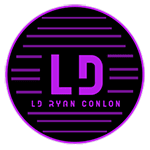Freelance stage lighting technicians are the unsung heroes of the dynamic stage lighting industry. As freelancers, they play a vital role in providing lighting solutions for productions, making freelance stage lighting tech networking an essential aspect of the industry.
In this article, we will delve into what it takes to be a freelance lighting tech, the skills required, and the pros and cons of working as a freelancer in the lighting industry. Whether you are an aspiring freelance lighting tech or looking to expand your network, this article will provide valuable insights and tips to help you connect with industry professionals and thrive in the field.
So, let’s shine a spotlight on the world of freelance stage lighting tech networking and discover the endless possibilities it offers.
What does being a freelance lighting tech involve?
Freelance lighting technicians play a critical role in the world of stage lighting. They work on a temporary basis and are contracted to handle various jobs within a lighting crew. While they work under the company they are contracted to, they operate as self-employed professionals, managing their own taxes and running their own business.
To excel in this field, freelance lighting technicians need a solid understanding of stage lighting practices. This includes skills in rigging, focusing, and troubleshooting. Additionally, proficiency in lighting desk operation and electrical qualifications can give them an edge in the highly competitive market.
The ability to work well in teams is essential, as freelance lighting technicians often collaborate with other crew members to create the perfect lighting setup for each production. They should also be comfortable working unsupervised and be adaptable to different situations and environments.
Overall, being a freelance lighting tech requires a combination of technical expertise, self-management skills, and the ability to thrive in a fast-paced industry.
Skills required for freelance lighting technicians:
- Rigging
- Focusing
- Troubleshooting
- Lighting desk operation
- Electrical qualifications
- Teamwork
- Adaptability
The benefits of freelance stage lighting tech networking
Freelance stage lighting tech networking offers numerous benefits to professionals in the field. It provides opportunities to build valuable connections within the lighting industry, expanding one’s network. These connections can lead to more freelance work and collaborations.
Being part of a stage lighting community allows for knowledge sharing, inspiration, and support from like-minded individuals. Networking with fellow professionals in the industry fosters a sense of community and camaraderie, creating a platform to exchange ideas, techniques, and industry insights.
By engaging in networking activities, professionals can stay updated on the latest industry trends and opportunities. Whether through conferences, seminars, or online forums, networking provides a pathway to discover new gigs and potential clients.
Networking not only enhances professional growth but also opens doors to lucrative freelance gigs. Building relationships with key industry players and decision-makers increases the chances of being recommended for projects or being directly approached for collaborations.
Freelance stage lighting tech networking is an essential tool for success in the lighting industry, offering a pathway to meaningful connections, personal development, and a thriving career.
| Benefits of Freelance Stage Lighting Tech Networking |
|---|
| Opportunities to build valuable connections |
| Knowledge sharing, inspiration, and support from like-minded individuals |
| Stay updated on industry trends and opportunities |
| Increased chances of landing lucrative freelance gigs |
Challenges and Downsides of Freelance Lighting Tech Work
While working as a freelance lighting technician comes with its perks, there are also several challenges and downsides that professionals in this field must consider. These challenges include unpredictable work schedules, extensive travel requirements, job instability, and the need for strong financial discipline.
Unpredictable Work
One of the main challenges of freelance lighting tech work is the unpredictable nature of the job. Freelancers often have limited control over which gigs they take, resulting in uncertainty regarding their work schedule. This lack of flexibility can sometimes interfere with personal plans and make it difficult to maintain a work-life balance.
Travel Requirements
Freelance lighting technicians frequently face extensive travel requirements as they are often hired for various projects in different locations. This can mean long hours on the road or in transit and being away from family and loved ones for extended periods of time. While this travel can be exciting and provide opportunities to explore new places, it can also be physically and mentally demanding.
Job Instability
Another challenge of freelance lighting tech work is the inherent job instability. Freelancers may experience periods with no work or a limited number of available gigs, which can have a significant impact on their income and financial stability. It requires careful financial planning and discipline to manage income during these lean periods and ensure financial security.
Financial Discipline
The instability of freelance work requires freelancers to exercise financial discipline and manage their income effectively. Without the stability of a steady paycheck, it’s crucial to budget wisely, save for lean periods, and plan for future expenses such as taxes and business costs. Freelancers must also ensure they are charging appropriate rates for their services and have a clear understanding of their financial responsibilities as self-employed individuals.
Despite these challenges, many professionals in the lighting industry find fulfillment and success in their freelance careers. By embracing the unpredictable nature of the work, adapting to frequent travel, and maintaining financial discipline, freelance lighting technicians can overcome these obstacles and thrive in their chosen field.
How to Succeed as a Freelance Lighting Tech
As a freelance lighting tech, building a strong network within the industry is crucial for success. Networking provides opportunities for new gigs and collaborations, allowing you to expand your reach and visibility in the industry. Here are some networking tips to help you thrive as a freelance lighting tech:
- Attend industry events: Make an effort to attend trade shows, conferences, and workshops related to the lighting industry. These events are great for connecting with professionals, staying updated on industry trends, and learning new skills.
- Engage on social media: Utilize platforms like LinkedIn, Twitter, and Instagram to connect with fellow industry professionals, share your work, and engage in relevant conversations. Building a strong online presence can increase your visibility and attract potential clients.
- Join professional organizations: Consider joining professional organizations or associations related to stage lighting. These associations often have networking events, educational resources, and job boards that can help you expand your network and access new opportunities.
- Collaborate with others: Seek opportunities to collaborate with other lighting professionals, such as designers, directors, or other technicians. Collaborative projects not only enhance your skills but also introduce you to new contacts and potential clients.
In addition to networking, personal finance discipline is crucial for managing your income and expenses effectively. Freelancing can bring irregular income, so it’s important to budget wisely and plan for periods with no work. Consider setting aside funds for taxes, retirement savings, and emergencies.
Furthermore, to thrive as a freelance lighting tech, it’s essential to have a wide range of skills that enhance your marketability and adaptability. Here are some key technical skills to focus on:
- Rigging: Master the art of safely and efficiently rigging lighting equipment to different structures.
- Focusing: Develop a strong understanding of how to focus lights for optimal stage lighting effects.
- Lighting desk operation: Familiarize yourself with various lighting control consoles and learn how to operate them effectively.
- Electrical qualifications: Acquire the necessary electrical qualifications to handle lighting equipment safely and troubleshoot electrical issues.
Additionally, soft skills such as teamwork, the ability to work well under pressure, and adaptability to changing situations are essential for freelance success in the lighting industry.
| Networking Tips | Personal Finance Discipline | Wide-ranging Skills |
|---|---|---|
| Attend industry events | Budget wisely for irregular income | Master rigging techniques |
| Engage on social media | Plan for periods with no work | Develop focusing skills |
| Join professional organizations | Set aside funds for taxes and emergencies | Learn lighting desk operation |
| Collaborate with other professionals | Consider retirement savings | Acquire electrical qualifications |
By implementing effective networking strategies, maintaining personal finance discipline, and continuously honing your wide-ranging skills, you can position yourself for success as a freelance lighting tech in the dynamic and competitive lighting industry.

The earning potential of freelance lighting techs
As freelance lighting technicians, the daily rate we earn is a significant aspect of our career. It’s essential to understand the factors that impact our earning potential for financial stability and success. While freelance lighting techs often command decent daily rates, there are important considerations to keep in mind.
The high rates we can charge compensate for the risks and costs associated with self-employment. As independent contractors, we are responsible for managing our taxes, national insurance contributions, and other business expenses. It’s crucial to factor in these financial obligations when determining our rates to ensure we cover our overhead costs and meet our income goals.
However, it’s important to note that freelance lighting techs may face income limitations due to the variable nature of available gigs. The number of opportunities and the ability to work on only one job at a time can impact our overall earning potential. It’s unlikely for us to become millionaires solely from our work, but many find financial stability and fulfillment in their careers.
To gain a clearer understanding of the financial side of freelancing, let’s take a closer look at the different factors that affect our income alongside the daily rate:
Taxes and Business Costs
As self-employed professionals, we must diligently manage our tax obligations and other business costs. Taxes typically account for a significant portion of our income, and it’s vital to set aside funds to cover these payments. Additionally, we have business costs such as equipment maintenance, transportation, marketing, and professional development. By considering these expenses when setting our rates, we can better manage our finances and ensure our earnings align with our desired income.
Income Limitations
While freelance lighting techs can earn competitive daily rates, it’s crucial to recognize that our income may be limited due to the number of available gigs. The entertainment industry can be unpredictable, with busy periods followed by slow seasons. During times of reduced work, we need to be financially prepared and allocate our earnings wisely to bridge any income gaps. Building a strong network and maintaining positive relationships with clients can help reduce income limitations by increasing our access to more gigs and opportunities.
Overall, freelance lighting techs have the potential to earn a decent living through their work. While financial success may vary, it’s important to approach our career with a realistic understanding of the financial landscape. By factoring in taxes, business costs, and income limitations, we can navigate the freelance industry with financial stability and confidence.
Benefits of Networking for Job Hunting in the Lighting Industry
When it comes to job hunting in the lighting industry, networking offers significant advantages over traditional job applications. While submitting resumes through job boards can be effective, networking increases your chances of success. By connecting with professionals in the industry, you can tap into a wide range of benefits that can enhance your job search and career prospects.
Building Professional Connections: Networking allows you to build valuable professional connections within the lighting industry. These connections can provide you with insights, advice, and even potential job opportunities. By establishing relationships with industry experts and experienced professionals, you can gain valuable guidance and expand your network.
References and Credibility: Through networking, you have the opportunity to build relationships with individuals who can vouch for your skills and professionalism. These connections can serve as references, increasing your credibility as a candidate. Having references who can attest to your capabilities can make a significant difference in the hiring process and enhance your chances of landing your desired job.
Faster Application Process: Networking can expedite the application process by providing direct access to job openings and opportunities. Employers often prefer candidates with connections to their company, whether through personal referrals or professional networks. By leveraging your network, you may be able to bypass traditional application channels and secure faster interviews and job offers.
Industry Insights and Trends: Networking allows you to stay informed about the latest industry insights and trends. By engaging with professionals in the field, you can gain valuable information about emerging technologies, new job opportunities, and upcoming projects. This knowledge can give you a competitive edge and help you position yourself as a highly informed and forward-thinking candidate.
Collaborative Opportunities: Networking expands your potential for collaborative opportunities within the lighting industry. By connecting with like-minded individuals, you can find partners for creative projects, freelancing gigs, or even business partnerships. These collaborations can not only enhance your skills and experience but also open up new avenues for professional growth and success.
Overall, networking plays a crucial role in job hunting in the lighting industry. It offers a range of benefits, including building connections, gaining references and credibility, expediting the application process, staying updated on industry trends, and accessing collaborative opportunities. By actively engaging in networking activities and nurturing professional relationships, you can significantly enhance your job search and increase your chances of securing exciting career opportunities in the lighting industry.
Networking Tips for Success in the Lighting Industry
Networking in the lighting industry doesn’t have to be intimidating. By embracing digital networking platforms like LinkedIn and social media, you can make connections in a more convenient and accessible way. Building a network opens up opportunities for support, advice, and guidance from experienced professionals in the field.
Approach networking with a genuine mindset, focusing on building relationships and adding value to others. Be thoughtful, considerate, and grateful in your interactions to create meaningful connections. By fostering strong relationships, you can make your network work for you and enhance your career in the lighting industry.
Embrace Digital Networking Platforms
- Utilize platforms like LinkedIn to connect with professionals in the lighting industry.
- Join relevant groups and engage in conversations to expand your network.
- Showcase your skills and expertise through your online profiles.
- Follow and engage with industry influencers to stay updated on trends and opportunities.
Seek Support and Advice
- Reach out to experienced professionals for guidance and mentorship.
- Attend industry events, workshops, and conferences to meet experts in person.
- Join online forums and communities to connect with like-minded individuals.
- Participate in webinars and virtual panel discussions to learn from industry leaders.
Approach Networking with Confidence
- Be proactive in reaching out to potential connections.
- Introduce yourself professionally, clearly articulating your goals and aspirations.
- Show genuine interest in others by asking thoughtful questions and actively listening.
- Be confident in sharing your own experiences and expertise.
Remember, networking is not just about what you can gain; it’s also about what you can contribute to others. By offering support, advice, and assistance to fellow professionals, you build a reputation as a valuable member of the lighting industry community. With the right networking strategies and a positive mindset, you can pave the way for success in your lighting career.
Building a Network and Finding Contacts in the Lighting Industry
Building a network in the lighting industry is crucial for expanding opportunities and advancing your career. To start, create a list of professionals in the field, including those you are familiar with, those you have lost touch with, and those with weak or indirect connections. Utilize your college alumni network to find fellow professionals in the lighting industry. Additionally, dormant ties, acquaintances you may not have interacted with in a while, can be valuable networking contacts. Don’t underestimate the power of weak ties, such as friends of friends, as they can provide introductions and help broaden your network.
Lighting Industry Networking Tips
| Tips | Description |
|---|---|
| 1 | Make a list of potential contacts |
| 2 | Utilize your college alumni network |
| 3 | Reconnect with dormant ties |
| 4 | Tap into weak ties for introductions |

By proactively listing contacts, leveraging your college alumni network, and reaching out to both dormant and weak ties, you can establish a strong network within the lighting industry. Remember, networking is not just about collecting business cards, but also about building genuine relationships and adding value to others within your industry.
Effectively reaching out to contacts and starting conversations
When it comes to connecting with your contacts, choosing the right outreach method is crucial. Here are some effective ways to initiate conversations and foster meaningful connections:
- LinkedIn: Utilize the power of LinkedIn, the leading professional networking platform. Create a compelling profile that showcases your expertise and reach out to potential contacts by sending personalized connection requests. Remember to maintain good LinkedIn etiquette by adding a personal message to increase your chances of acceptance.
- Email: If a contact is not active on LinkedIn or you prefer a more formal approach, sending an email is an ideal way to reach out. Craft a well-written message introducing yourself, highlighting any common connections or interests, and expressing your desire to connect and start a meaningful conversation.
- Text or Phone Call: Reserve text messages or phone calls for contacts you already have a well-established relationship with. These methods are more personal and should be used selectively to maintain a sense of professionalism and courtesy.
Remember to always be respectful of your contact’s preferred communication method. Now, let’s take a look at some essential etiquette tips for successful outreach:
- Be thoughtful and considerate: Personalize each message and show genuine interest in building a connection. Acknowledge any common interests or connections to establish a sense of rapport from the start.
- Ask targeted questions: Design your initial message to initiate a conversation. By asking relevant and targeted questions, you encourage your contact to respond, fostering engagement and facilitating a meaningful dialogue.
With these outreach methods and etiquette tips, you’ll be well-equipped to connect with contacts in the lighting industry and start engaging conversations that can lead to lasting professional relationships and opportunities.
Conclusion
Freelance stage lighting tech networking is an essential component of the industry, providing professionals with the opportunity to connect with like-minded individuals, discover new prospects, and boost their careers. Despite the challenges and constraints that come with freelance work, many individuals find immense satisfaction and achievement in this vibrant field. To excel as a freelance lighting tech, it’s crucial to cultivate a robust network, refine your skills, and maintain financial discipline.
Networking offers numerous benefits for freelance lighting techs, including access to a wider range of opportunities and collaborations within the industry. Building connections not only expands your professional network but also creates a support system where knowledge sharing, inspiration, and guidance thrive. Additionally, networking increases the likelihood of securing high-profile freelance gigs and staying up-to-date with the latest industry trends and advancements.
To maximize your success as a freelance lighting tech, there are a few key tips to keep in mind. First, focus on building a strong network by actively engaging with professionals in the field and attending industry events. Second, honing your technical skills, such as rigging, focusing, and lighting desk operation, will enhance your marketability and adaptability. Finally, maintaining financial discipline and effectively managing your income and expenses will ensure long-term stability in your freelance career.

Ryan Conlon is a highly experienced Corporate Freelance Lighting Designer with two decades of dedicated work in the entertainment industry. With a passion for creating captivating lighting experiences, Ryan has contributed his expertise to numerous corporate meetings, stage productions, concerts, and events throughout his career.
